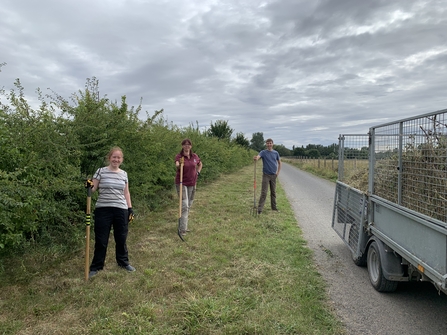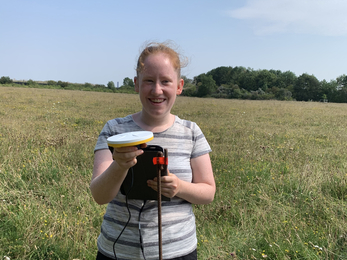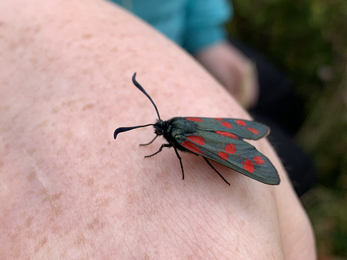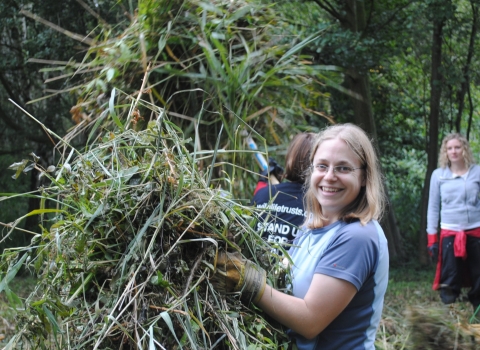Hi, my name is Jazz, and I’ve been doing an internship with the Wildlife Trust BCN at Trumpington Meadows this summer. I’m about to start my third year studying Ecology at the University of Cambridge, so it’s been amazing to gain some hands-on experience of what it means to work in conservation.
This is a week in my life as an intern.
Monday 3rd August 2020
On Mondays we check our trail cameras. Each week we set up two, trying to find the perfect spot to capture something really special - maybe a badger, or an otter swimming down the river that runs through the reserve. Most weeks we are rewarded with hundreds of 30 second clips of cyclists, which we then have to watch and delete, just on the off chance that the cyclist was commuting into Cambridge accompanied by any number of hedgehogs, deer, and mice. Rather like a disney princess but wearing considerably more lycra! But we continue to watch, spurred on by the adrenaline rush of wondering whether the next video will be the one we were waiting for.
Two weeks ago, we found an owl. She was sitting just to one side of the screen, looking up at the camera, her eyes reflecting the light. This week we had no such luck, but we’re hopeful that we’ll find one of those elusive badgers next week!
Tuesday 4th August 2020
Most people, when they talk about good weather, mean that it is hot and sunny. Today, I would have given anything for some classic British rain!
...while it may be a shame to see the meadows looking bare at the end of the summer, the long term benefits are clear, and almost enough to get us through a full day's work of mowing, raking and loading the cut hay into the trailer.
We spent the day helping out with mowing an area of grassland in the South of the reserve. Every summer the meadows are cut and the resulting hay given away as hay bales, either to farmers for their livestock or to allotment holders looking for a mulch. This takes nutrients out of the soil, which encourages the grassland to have a high diversity of different plants in the future, and prevents the growth of too many stinging nettles (which thrive in nutrient rich soils) or saplings seeded from hedgerows encroaching into the meadows. So, while it may be a shame to see the meadows looking bare at the end of the summer, the long term benefits are clear, and almost enough to get us through a full day's work of mowing, raking and loading the cut hay into the trailer.




